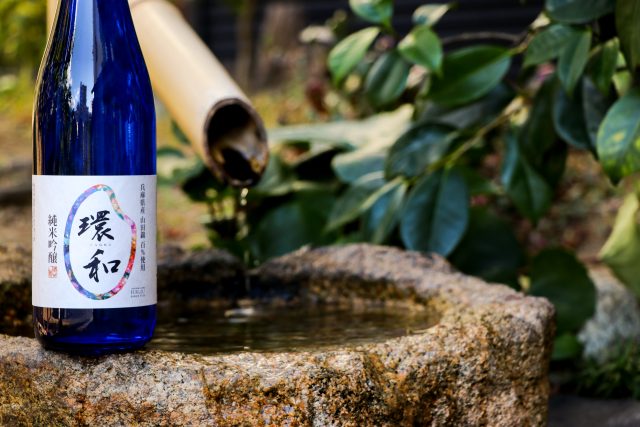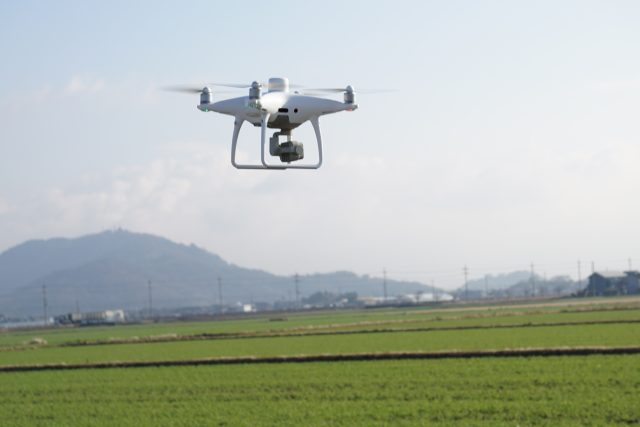Kobe Shushinkan looks to a green future in sake production
By Michael HubandThe 270-year-old producer is combining generations of expertise with modern technology to build a more sustainable sake industry.

When Kobe Shushinkan, also known as Fukuju Brewery, began operations in 1751, Japan was a very different nation. It was a feudal society, ruled by the shōguns and supported by a vast system of rural agriculture. The brewery, in the port city of Kobe, predates such significant events as Commodore Perry’s expeditions and the Meiji restoration, as well as cultural touchstones like Hokusai’s prints.
The 13th-generation producer, famous for its Fukuju Junmai Ginjo sake, has seen plenty of change. Yet, rather than dwell on its long history, it has taken a forward-looking approach in the face of new challenges. The brewery has pushed a green agenda to face the threats of climate change.
Changing weather patterns are of particular concern to the sake industry. Beyond the universal impacts, climate change has specific implications on the production of sake rice. A warmer climate changes the rhythms of any crop, but increased temperatures at the end of the growing season are concerning for sake producers.
It is especially pertinent for the historic producer. Kobe Shushinkan is located in Hyogo Prefecture, a centre of production for the rice variety Yamada-Nishiki. The prestigious crop, which makes up 35% of sake-specific rice production, is particularly renowned for its high yield of large-size shin-paku. This is the starchy centre of the grain, which koji spores penetrate to convert into fermentable sugars. A warm period in September, once the ears of rice have emerged, decreases the expression rate of the shin-paku. It is therefore becoming more difficult to make high-quality koji, and consequently high-quality sake.
As the climate warms, the impact on rice quality is increasing every year. Higher temperatures can dry out rice grains, making them more likely to crack during the polishing process. Cracked grains absorb more water during soaking, leading to moisture variations within a single batch and making homogenous, high-quality production much more difficult.
It is with these challenges in mind that Takenosuke Yasufuku, president of the brewery, has launched a raft of green initiatives. Fittingly for such an experienced producer, its plans include both new technologies and finessing its practice.
Resource efficiency has been a key focus. Water, used to soak the rice before fermentation can begin, is used on a huge scale in the industry. Kobe Shushinkan, however, has dramatically improved efficiency. While its sake production tripled between 2010 and 2017, the water consumption increased by just 35%.
Energy consumption has likewise seen reduction, falling by 12% over the same period. Indeed, in 2022 the brewery made history as the first sake producer to achieve Scope 1 and 2 carbon neutrality. A commitment to energy efficiency is now embedded in the company’s philosophy. Its EcoZero initiative, for instance, has minimised energy usage by limiting the number of days spent brewing and polishing the rice less intensively.
Other problems require hi-tech solutions. Phosphorus-based fertilisers provide vital nutrients for growing rice, but they require energy intensive production and risk dangerous runoff. Finding sustainable ways to use them is a priority for the industry, both to make an ecological impact and reduce costs.
Kobe City is already promoting a circular approach to the problem. For instance, it has begun processing sewage to extract phosphorus that can be recycled as a fertiliser. However, the region’s growers are using even more hi-tech solutions.

One, pioneered by multinational company Konica Minolta, sees remote sensing used to make effective interventions. Its sensors, which are equipped on drones, evaluate a plant’s Normalized Difference Vegetation Index. This measure assesses plant health by analysing reflections of light. Healthy plants, which are taller and with denser foliage, absorb visible light better than unhealthy ones. With this information, alongside soil analysis, producers can pinpoint exactly which areas are struggling and when and where to use fertilisers. The precision approach improves quality and yield, with no plant receiving too much or too little, and also reduces unnecessary fertiliser in the ecosystem.
The intelligent solution is now guiding its latest work. The recently released Junmai Ginjo Kanna was produced using the above drone technology and recycled phosphorus. Its name, using the characters for ‘environment’ and ‘gentleness’, represents the goal of a sake friendly to both the environment and consumers. The brewery describes the sake as rich and velvety, with a mellow mouthfeel, balanced by a fresh, sharp aftertaste.
These initiatives embody the company’s increased sustainability focus, also evidenced by winning categories at Japan’s EcoPro Awards and the drinks business Green Awards. As Kobe Shushinkan closes in on its 300th anniversary, that focus is defining its current era.
Related news
Q&A: the London bartender taking pointers from Asia's top bars
South Australia wine exports to China reach post-tariff high
Will white wine be central to Burgundy's future success in Asia?
